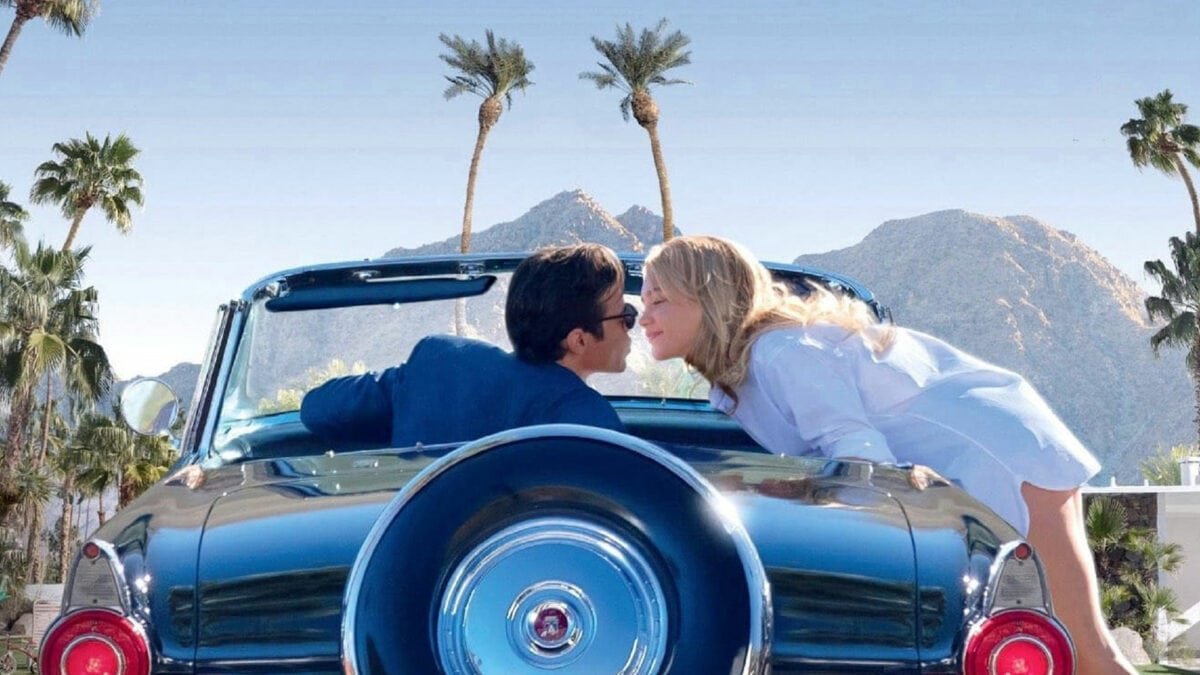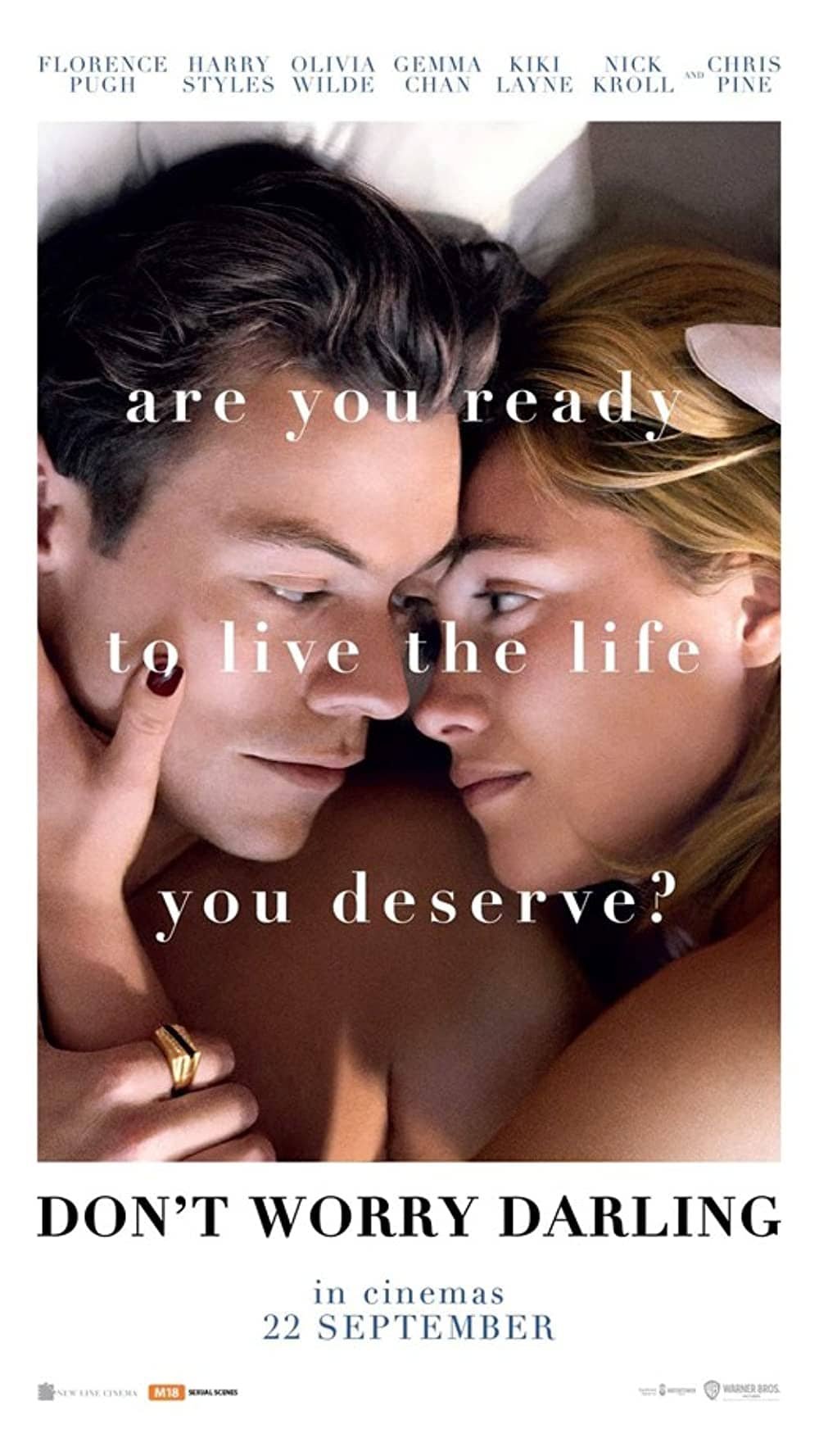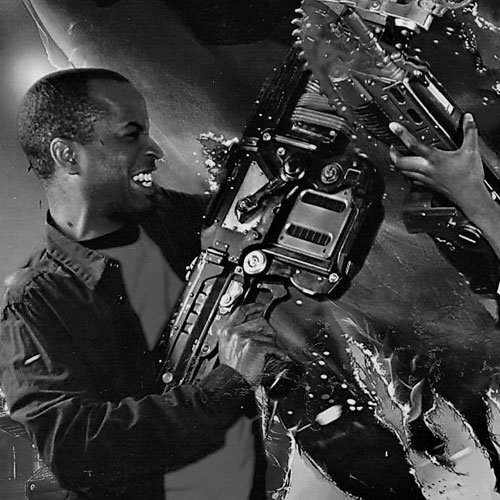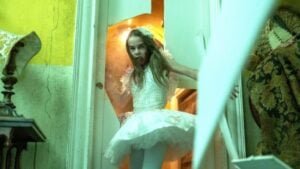Oliva Wilde’s third directorial effort, Don’t Worry Darling, is a psychological suspense thriller that you’ve probably seen before if you’re over the age of 30 and a fan of the genre, and chances are likely that previous experience was executed better. The film features UK rising star Florence Pugh (Midsommar, Black Widow), former One Direction heartthrob Harry Styles (Dunkirk, My Policeman) and a supporting ensemble cast including Chris Pine and director Wilde herself.
The story focuses on the film’s protagonist Alice Chambers (Florence Pugh) who, alongside her husband Jack Chambers (Styles,) appears to be living the idyllic 1950s upper-middle-class lifestyle—if your ideal lifestyle involves fulfilling that era’s now outdated male fantasy of the perfect housewife, that is. Jack and Alice reside in a company town called Victory, a remote suburban neighbourhood in the California desert built to house the employees of the Victory Project, an enigmatic organization that engages in the “Development of Progressive Materials.”
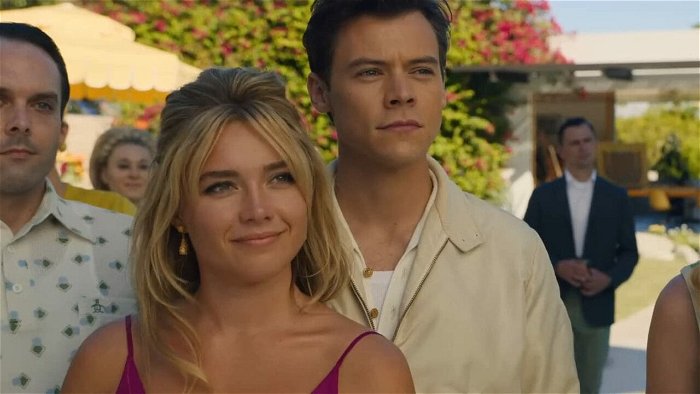
Every morning during the week like scene out of The Flintstones or The Jetsons, all the company men drive off into the desert towards Victory HQ to engage in top-secret work (perhaps breaking down very resilient boulders) while all the women remain home and tend to all the housekeeping, which largely encompasses cleaning their entire households to a fine shine, performing routing chores like laundry, and ensuring that their husbands are greeted with a piping hot, multiple-course meal when they arrive home after a long day of work.
On the weekends, the married couples take turns hosting each other while getting inebriated, except on the rare occasion that a new couple joins the community and is greeted by Victory’s charismatic leader and founder, Frank (Pine), in an even more lavish party at his residence that all are obliged to attend.
It isn’t necessarily all bad for the ladies, though. Once their daily chores are met they are “free” (read: obligated) to take regular ballet classes under the instructions of Frank’s wife, Shelley, shop indiscriminately with their husbands’ credit cards and of course gossip about current events, as long as those conversations don’t involve certain subjects or people, like what their husbands actually do at Victory HQ or the mental state of Florence’s former best friend Margaret, who apparently “lost her mind” as well as her young child after recently venturing out into the “restricted area”.
As for the Chambers family in particular, life seems like it couldn’t be better. They’re still young and childless, they’re passionately intimate, they enjoy a great sex life and Jack is right on track to earn that big promotion. Of course, that’s when Alice begins to notice multiple signs that her fairy-tale existence isn’t all that it seems. Her obsession with learning the truth inevitably puts her on a collision course with Frank, whom everyone in Victory regards not only as their boss, but also as their spiritual leader.
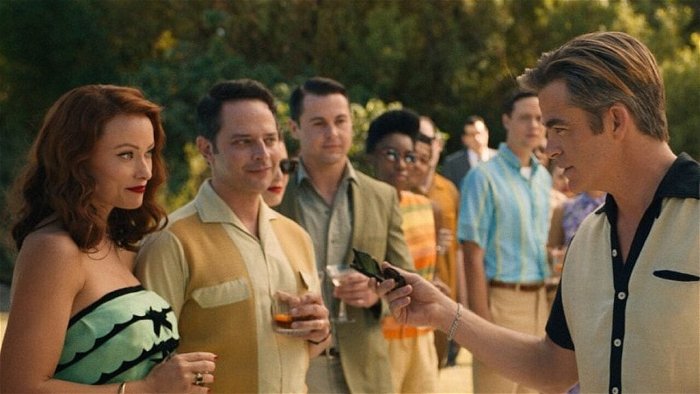
Director Wilde has cited The Truman Show as one of her inspirations for this film, alongside The Matrix and Inception, and while those influences are undeniably present, the inevitable comparison highlights a huge failing of Don’t Worry Darling right out of the gate. While the former films establish their worlds and their rules early, this movie spends an excessive amount of time slowly unravelling the mystery of its world, just so that it can build towards the twist in its third act.
So long, in fact, that by the time it’s revealed, most astute film viewers will have already seen it coming from a mile away. Even worse, new world rules continue to be added haphazardly even in the third act, resulting in a logically messy climax that audiences will have a difficult time suspending their belief while watching.
Don’t get me wrong, I’m quite cognizant of the fact that Don’t Worry Darling is all about suspense, and films in that genre tend to keep their cards close to their chests for as long as they can, but this film really overdoes it, especially for a narrative that also incorporates elements of science fiction that deserve at least some level of explanation.
“…much of the symbolism in Don’t Worry Darling feels empty and only provokes more questions…”
To Don’t Worry Darling’s credit, there is definitely some wondrous (imagery early on in the film that teases the mental horrors to come (empty eggshells, unsettling window phobias and synchronized dancing showgirls with nightmarish makeup come to mind in particular). That said, the cinematography and editing, while both technically brilliant, lean so heavily and repetitively on such shots that, by the one-hour mark, I found myself growing irritated and tired of the heavy-handed imagery each subsequent time it made a reappearance.
What’s worse is that much of the symbolism in Don’t Worry Darling feels empty and only provokes more questions rather than answers. Sure, the connection between the aforementioned synchronized showgirls and the ballet lessons that Alice and the other housewives participate in is a fairly easy one to make, given both disciplines’ need for order, symmetry, and control, but what about the blood droplets or the frequent tremors emanating from the Victory Project’s Area 51-like testing grounds?
Certainly there is meaning behind all the film’s imagery and I’m sure that if I ever get Director Wilde in a room to discuss it, she would be happy to elaborate, but as far as Don’t Worry Darling itself is concerned, no one’s sharing.
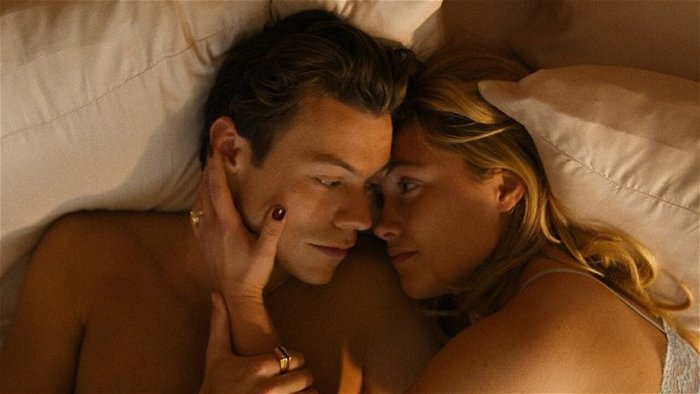
Finally, my biggest disappointment with the movie is that, despite being a film with many things to say, it leaves so much on the table because it preoccupies itself with the “what” and ignores the “why” or “how,” thus missing countless opportunities to better flesh out its world, its rules and its characters. Frank, who ultimately becomes Alice’s nemesis, is one of the most blatant examples of this lack of attention. There’s no argument that he’s a gaslighting controlling monster, but why, and to what end? Where is his immovable object to meet Alice’s unstoppable force? Victory, after all, is Frank’s creation, so the motivation behind its conception is crucial to making its existence make sense.
What is Frank’s gameplan? What are the goals of his countless speeches being piped into the homes of Victory residents over intercom and cassette tapes? Why does he allow Alice to continue to oppose him, like a cat playing with its prey before the kill? And most importantly, what is his driving motivation for building Victory into the community that exists in the movie?
Don’t Worry Darling never addresses any of these questions, resulting in an antagonist that solely exists for the sake of the premise, rather than giving the audience a three-dimensional Frank that is believable and, by consequence, a world that is believable. Simply labelling Frank as “evil for evil’s sake” isn’t enough to explain the lengths to which his character has gone to get where he is, nor is it for the other Victory residents who willingly follow him, whose actions are just as reprehensible, if not more so.
There are definitely performances and moments in the film worthy of praise, however. Florence’s raw emotions in her portrayal of Alice in moments of crisis are easily Don’t Worry Darling’s showstoppers, and despite Harry’s comparative lack of acting experience and wobbly on-screen English accent, even though he’s a Brit, he and Florence share some very convincing, intimate moments as Alice and Jack that make the love they share seem genuine.
Meanwhile, composer John Powell’s chilling clash of orchestral and electronic instruments pairs masterfully Mathew Libatique’s grandiose cinematography, punctuating moments where conventional meets the weird, with unnerving vocals like whispers, chants, and even choir singing, fragments cut short and/or played in reverse.
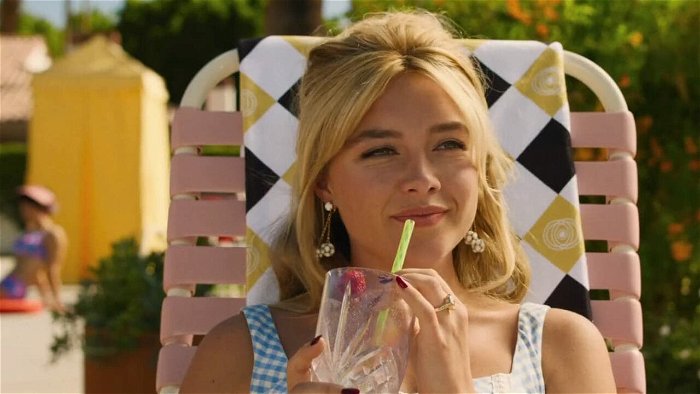
There’s a quote from the film that best sums up my feelings about Don’t Worry Darling. During the pivotal dinner scene in the second act, where Alice goes verbally tête-à-têtes with Frank, she challenges all her party guests to question their reality with the question: “Do you even know what the Victory Project actually is?” To which Frank smugly responds, “Do you?” Regrettably, a significant number of Don’t Worry Darling viewers are bound to leave this film scratching their heads, not knowing the answer either, which only highlights how many of Don’t Worry Darling’s mysteries still remain unexplained after a perplexing two hours.
As for the question itself, I suppose it’s easy enough to substitute in the word “control” for “Victory,” brush off one’s hands and call it a day, but I’m just not satisfied with that. I really would have liked to have seen a version of this film whose attention to its world and character-building was as lavish as its visuals.
